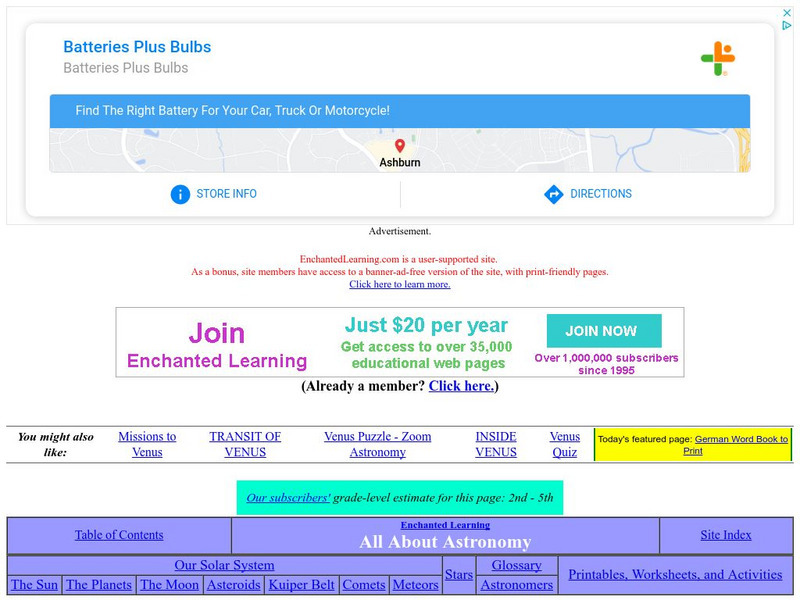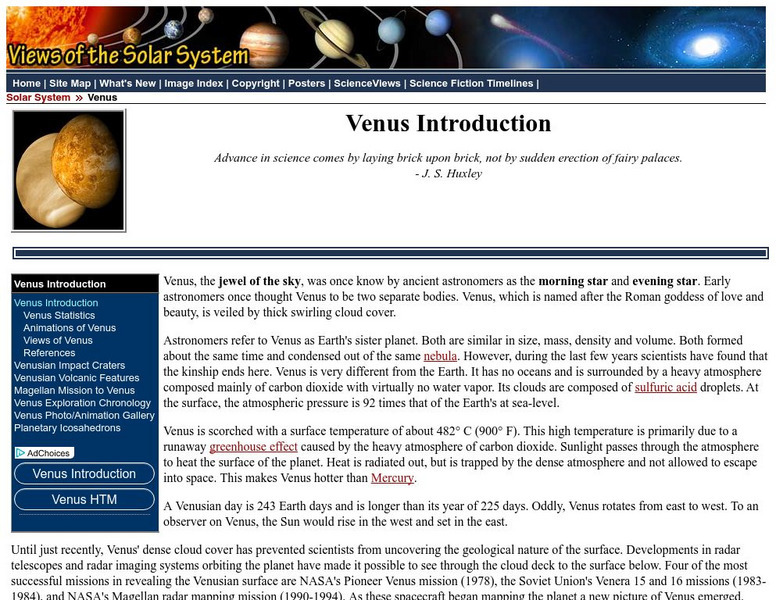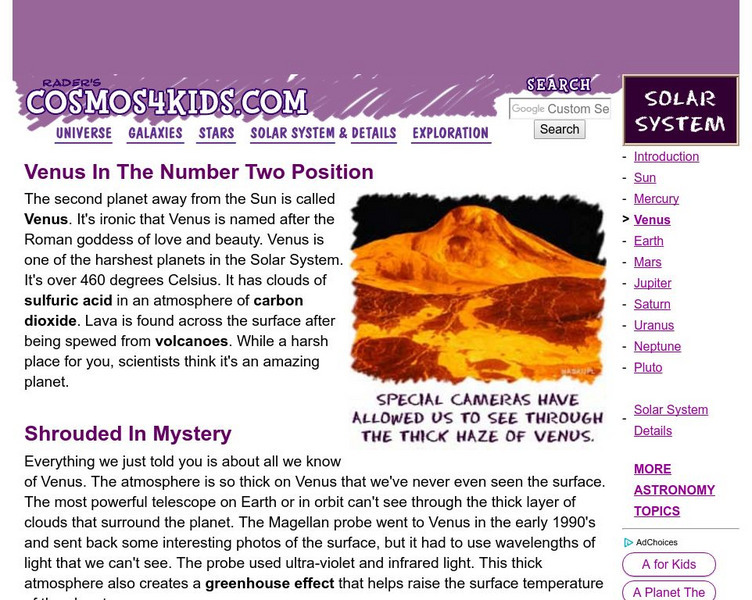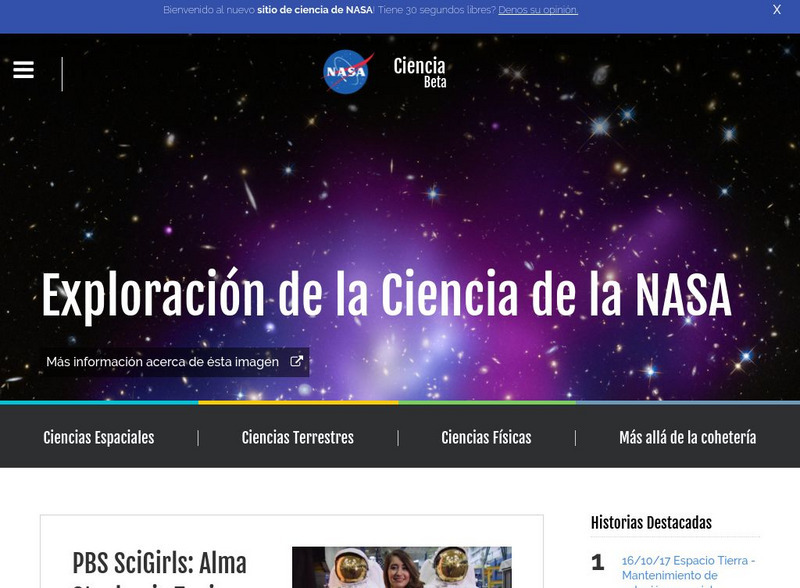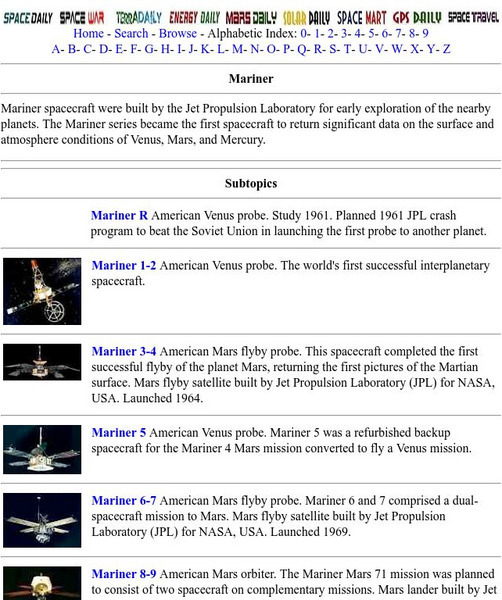Mr. Hill's Science Website
Solar System Fact Sheet
Here is a fantastic, educational handout packed with information and facts not only about the planets in our solar system, but also regarding major moons and their surface features, dwarf planets, comets, and asteroids.
Smithsonian Institution
National Air and Space Museum: Exploring the Planets: Venus
Get the facts on Venus. Resource offers a variety of satellite images and facts about the structure and features of Venus.
Enchanted Learning
Enchanted Learning: All About Space: Venus
All About Space profiles the planet Venus with information about its size, mass, atmosphere, length of day, and the like. Features include interactive activities and learning exercises.
Ducksters
Ducksters: Astronomy for Kids: The Planet Venus
Kids learn about the planet Venus of the Solar System including fun facts, mass, day, year, and distance from the Sun. Astronomy for kids and teachers.
American Museum of Natural History
American Museum of Natural History: Venus O Logy Card
Flip this interactive card to start learning about the planet Venus. Answer multiple-choice and fact-or-fiction questions and review some fast facts about Venus.
Views of the Solar System
Views of the Solar System: Venus
Discover interesting information about the planet Venus through a vast archive of photographs and scientific facts.
Cosmos 4 kids
Cosmos4 Kids: Solar System: Venus
Learn the basic facts about the planet Venus. The brief, to the point text makes this site most suitable for younger researchers.
European Space Agency
European Space Agency: Esa Kids: Our Universe: Venus
A basic overview of the planet Venus. Links to information about the other planets and objects in the solar system are included.
Smithsonian Institution
National Air and Space Museum: Exploring the Planets: Our Solar System
Take a tour of our solar system and learn fascinating details and observations about the planets.
Science4Fun
Science4 Fun: Venus
Learn fun facts and details about the atmosphere, geography, composition, and discovery of Venus, the second closest planet to the sun.
Smithsonian Institution
National Air and Space Museum: Exploring the Planets: Ancient Times & the Greeks
In ancient times only five planets were known: Mercury, Venus, Mars, Jupiter, and Saturn. Learn about Greek astronomer Ptolemy's theory for the solar system that was to survive for fourteen centuries.
NASA
Nasa: La Historia De Hoy: Today's History (Spanish)
Explore the depths of space and science comprehensive information about the meteor showers in 2004, the transit of Venus, virtual reality, and other interesting science history.
NASA
Nasa: Image Science Center: Ask the Space Scientist
A NASA scientist, Dr. Sten Odenwald, answers many students' questions. Topics include planets, galaxies, black holes, the origin of the universe, and common misconceptions about space.
Other
Encyclopedia Astronautica: Mariner
This web page contains information about Mariner I and Mariner II. The page explains how Mariner II was the first spacecraft to successfully fly by another planet. Includes detailed chronology of the Mariner missions.


